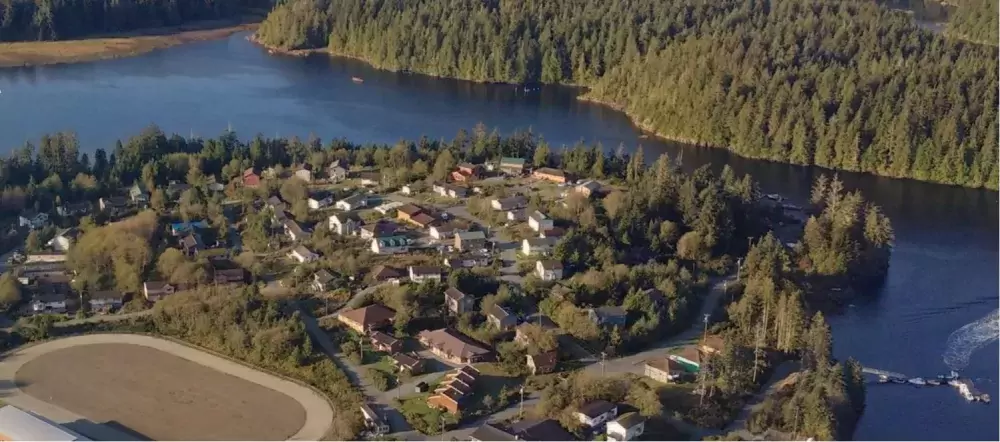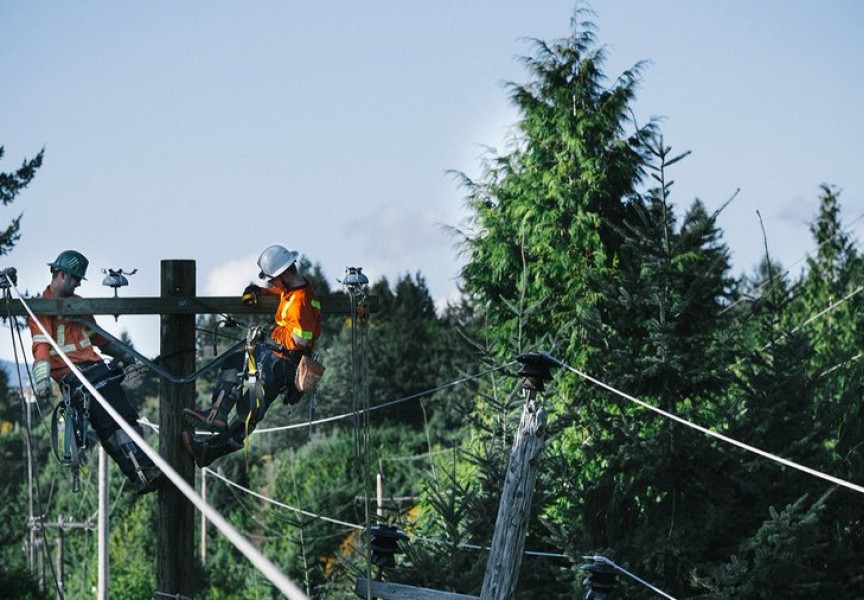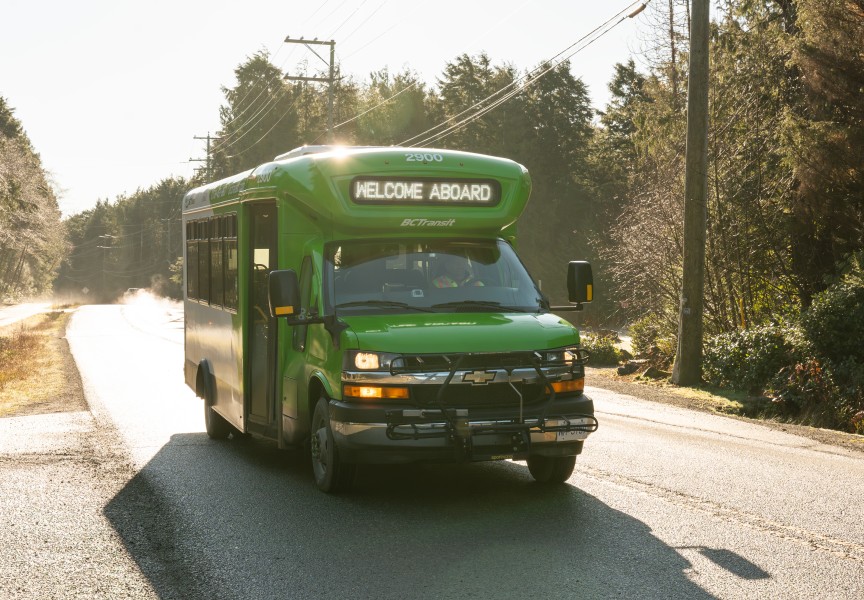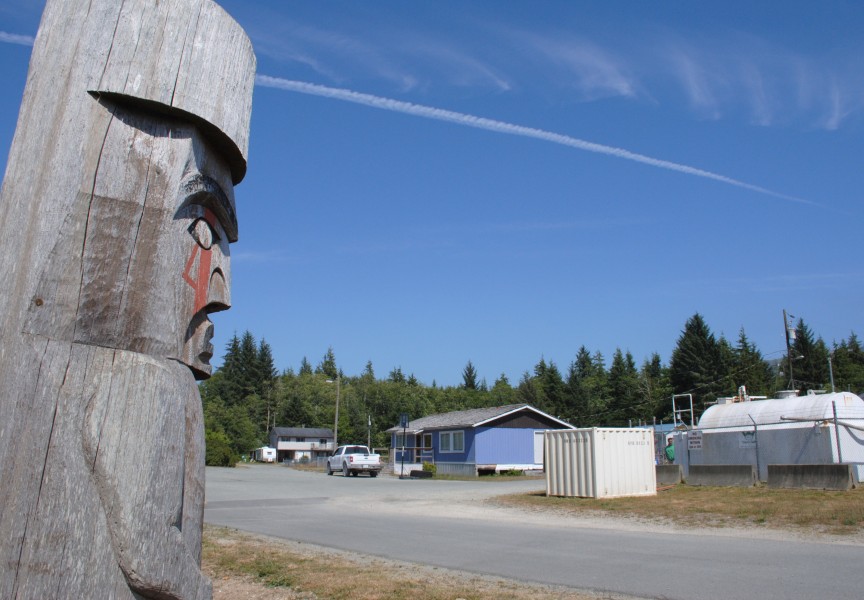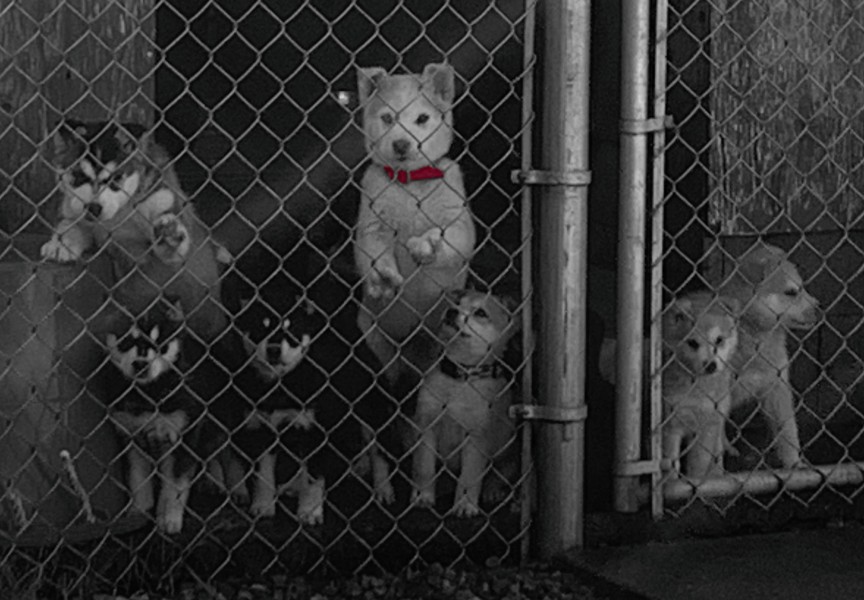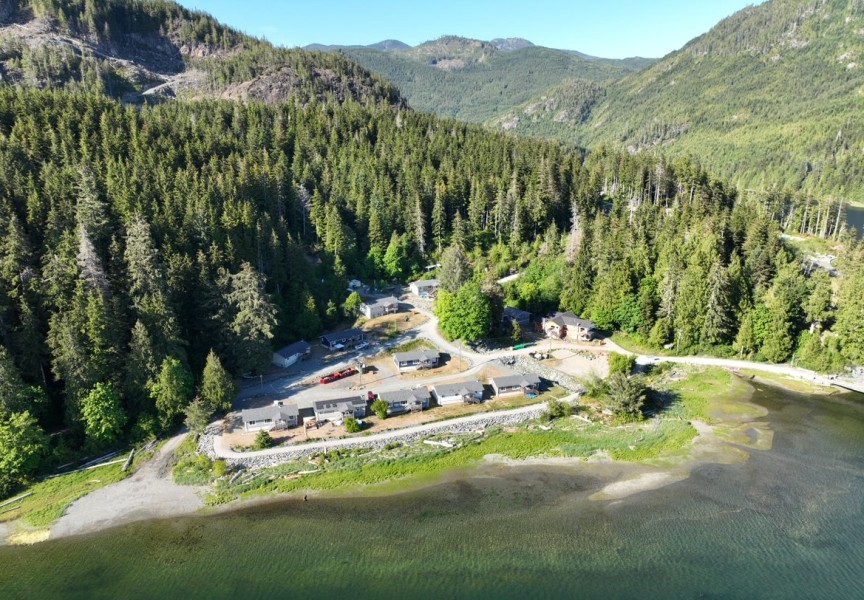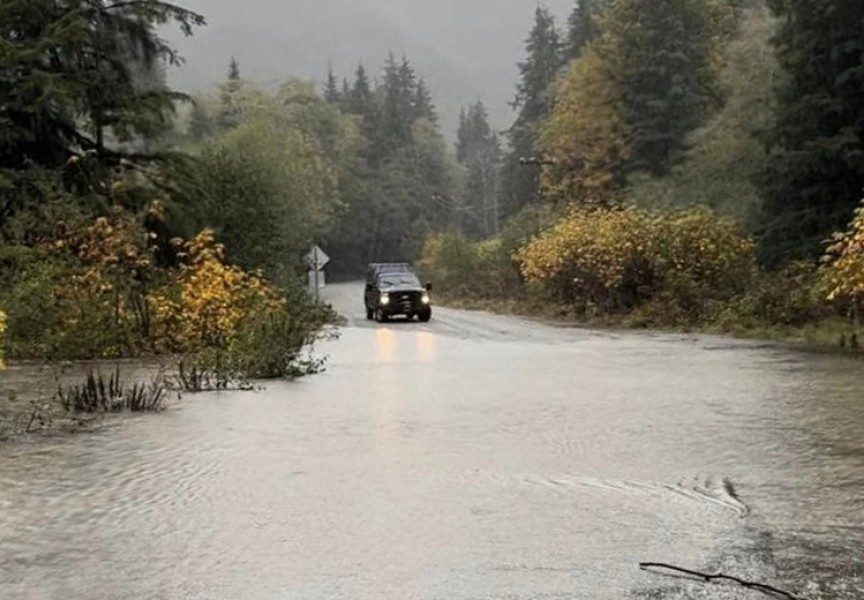After nearly three years, Ahousaht First Nation Elected Chief Greg Louie said the community’s new wastewater treatment plant is in the commissioning stage.
Once any “minor deficiencies” are worked through, Louie said the plant should be fully operational later this fall.
The federally funded $28-million project was developed to meet federal requirements and to accommodate the growing number of people moving to the community on Flores Island, Louie said.
“The system we had was old and antiquated,” he said. “It didn’t satisfy the community’s needs and also environmental needs.”
Canada’s Wastewater Systems Effluent Regulations came into effect in 2012, which required communities with a certain volume of wastewater effluent to provide secondary treatment to their sewage outflows.
Doug Neff, director of capital programs with the Nuu-chah-nulth Tribal Council, said the existing population in Ahousaht put the community in excess of the regulatory requirements.
But, he said, secondary treatment systems are something communities should be looking at, whether it’s a regulatory requirement or not.
“I believe that secondary treatments are just the right thing to do if you're out-falling to a marine environment or ground environment,” Neff said.
Before the secondary treatment system was built, Neff said there were concerns about the presence of fecal coliform around Flores Island.
The community faced continual beach closures because of the water quality, Neff said in 2018 before construction of the project began.
Although there are biological processes that are still being worked through, Neff said the effluent coming out of the new system is “meeting all of the required parameters for the treatment system.”
Ahousaht is currently in negotiations with Indigenous Services Canada to expand the community further by creating two new subdivisions, Louie said.
The expansion is aimed to address Ahousaht’s overcrowded homes and growing population in the 1,000-resident village.
Projects like the new wastewater treatment plant are not only helping the health of the community, but are creating jobs that allow members to stay on the remote island.
“There’s no place like home,” Louie said. “And if you’re working and have a steady job, why leave?”
Marcelina Jack has been involved with the project since February 2021 and said she feels like she’s “won the lottery.”
“There’s not too many jobs out here in Ahousaht,” she said. “Especially jobs that are all year round.”
Before the position opened, Jack said she had been out of work for a few years and was preparing to move to Campbell River to find a job.
The position has allowed her to stay home, close to her friends and family.
It’s sentimental for Jack, who used to accompany her father, Charles, to work when she was growing up.
Charles worked at the nation’s old treatment plant for 30 years before he fell 22 feet off his porch in 2014, Jack said.
The accident hindered his ability to keep working, but Jack’s new position has given her the opportunity to continue his legacy.
“It makes me proud,” she said. “I wouldn’t be who I am today if I didn’t have my dad in my life.”
Right now, Jack runs the plant with her cousin, Tommy Paul Jr., but said two more positions will be opening.
Jack said her father is the reason she’s the type of person “who goes above and beyond if something needs to be done.”
“I follow in his footsteps,” she said.

